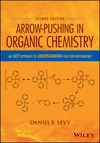For some time, I have been contemplating issues such as:
• The future shape of the biopharmaceutical industry
• How healthcare reform will impact the pharmaceutical industry
• How to manage the trend in offshoring chemistry activities to CROs
• Where big pharmaceutical companies will rebuild their pipeline of new drug candidates
• Where the chemists of the future will fit into this changing industrial environment
As if these topics aren't enough, there is always the question of
HOW CAN WE MOTIVATE THE NEXT GENERATION OF SCIENTISTS TO PURSUE CAREERS IN CHEMISTRY???
Regardless of the bullet points listed above, there can be no continuity in our scientific endeavors without an ability to guide the best and brightest of our youth into the direction of pursuing careers in applied sciences. While this is an obvious statement, I cannot emphasize enough that one of the main gate keeping subjects is organic chemistry. When students are first expected to confront this subject, they are presented with a textbook encyclopedic in size. The amount of information they are expected to absorb is daunting for anyone and many students believe that their only hope is to commit their coursework to memory. THIS WAS MY FIRST EXPERIENCE IN THIS SUBJECT!!!
As I progressed into my first semester of organic chemistry, I came to realize that memorization of the multitude of name reactions and all of their variants was nowhere near as important as developing an understanding of the fundamental mechanisms that underlie each reaction presented in organic chemistry. I abandoned all attempts to use chemical reaction flash cards and allowed my association of reaction names with chemical transformations to develop through osmosis. Instead, I practiced chemical reactions while incorporating each mechanistic step into my scratch pad. Using curved arrows, I kept track of the movement of electrons and gradually developed a strong appreciation for the value of this "arrow pushing" technique. My grades in organic chemistry improved and I continued to study this subject.
All of the above took place in 1984 - 25 years ago. Since then, I earned my PhD at MIT and am now a synthetic organic chemist having led and contributed to drug discovery efforts for over 17 years. During that time, I have experienced many facets of the pharmaceutical industry impacted by chemistry. These areas include:
• Drug discovery/development
• Patent law
• Business development
• Environmental health and safety
• Quality assurance/control
To those of you who feel apprehensive about studying organic chemistry, please stick with it. Numerous study aids are now available that present strategies to approach and master this subject. Remember, there is a huge world of opportunities that open to those with an understanding of this basic science - the chemistry of carbon.





i wish you could have been my chemistry teacher.....
ReplyDeleteHey,
ReplyDeleteI am so fond of chemistry and it seems, as I take more chem classes, my curiosity deepens. I am 3rd year Biochem/Chem major and hoping to apply to Med school. Please any advice that you may give will be appreciated.
Something for the kids to get them intested. It's on cool technology - iPhone and iPod. Check out
ReplyDeletewww.ChemJuice.com
You are completely correct in saying commiting equations and reactions and mechanisms, etc to memory is no good.
ReplyDeleteThat is exactly what my teacher says.But unfortunately majority of Chemistry teachers try to stuff all the reactions and some even compound names! into your memory.
And belive it or not some of the students in their classes score well and pass well so other students belive that is the correct way.
But the problem with those students is that they cannot explain if asked why a reaction happens the way it does.
Understanding is better than memorizing
Thank you for your comments. I experienced these issues first hand and had little success through memorization. That is why I wrote "Arrow Pushing in Organic Chemistry - An Easy Approach to Understanding Reaction Mechanisms." This book, designed to supplement organic chemistry textbooks, breaks down reactions into mechanistic subtypes. Through an understanding of these mechanistic components, more complex reactions and reaction mechanisms can be understood - not just memorized.
ReplyDeleteNow it is proven that CBD also has anti-cancerous properties that it can slow the growth of the tumor and even reduce its size in some cases. pure CBD store
ReplyDelete